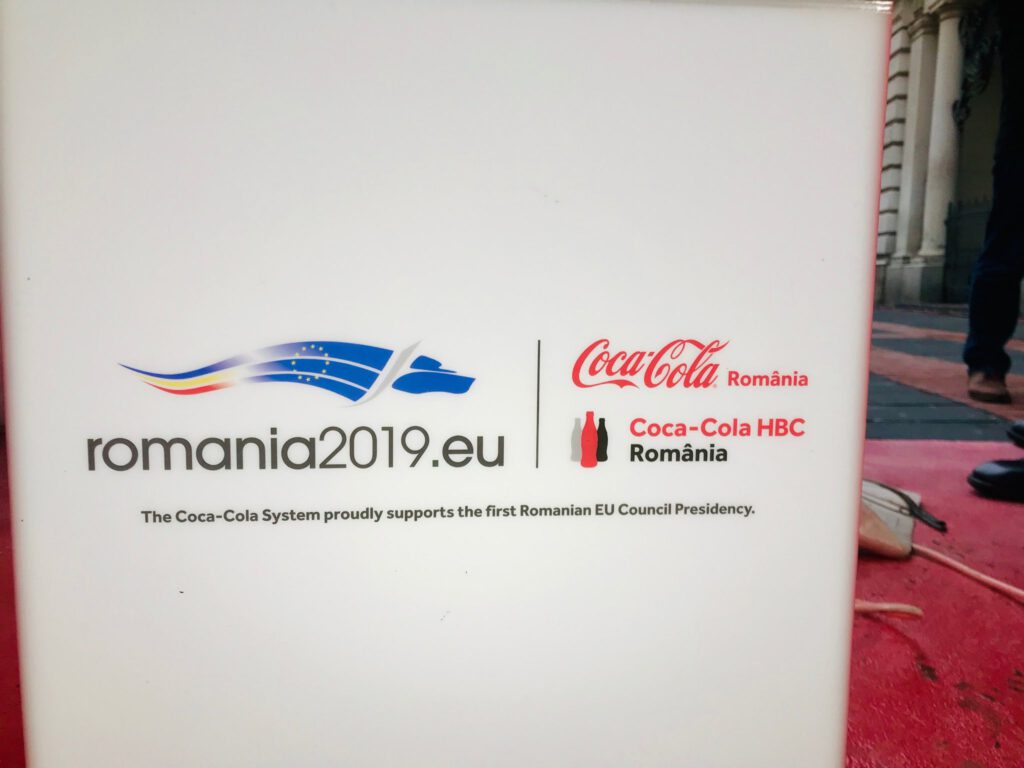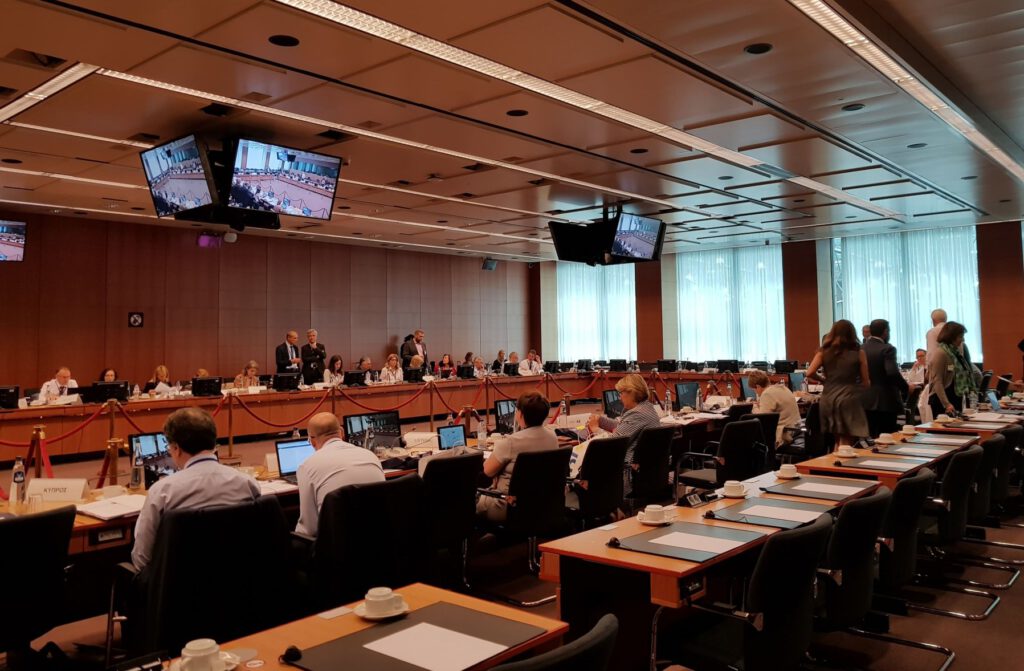Guidelines contain non-compelling language and continue to suggest that the Presidency is not part of the Council.

Yesterday, the Working Party on Information adopted new guidelines on sponsorship of the Council Presidency.
The half-page note adopted yesterday, officially titled “Guidance for Presidency best practice on the use of sponsorship” contains a set of recommendations and warnings for incoming Presidencies. It calls on them to “carefully consider the possible impact of the choice of sponsors on the reputation of the Council or the EU” and asks them to adopt measures to avoid conflicts of interest in relation to sponsorship deals. It further holds that sponsorship cannot be associated with Council decision making, for which reason sponsorship and Council logos may not appear together. Presidencies are also called upon to publish their list of sponsors and their criteria for having selected them.
The guidelines appear intended to constitute non-binding soft law. They largely contain non-compelling or impersonal language, by which Presidencies “are adviced to … consider”, “are encouraged”, although more forceful verbs such as “should” and “cannot” also appear in the text.
Qui est in? Qui est out?
In accordance with the European Treaties, the Council is presided over by a different member state on a six-monthly rotating basis. The incumbent Presidency sets the agenda of and chairs most Council meetings, negotiates legislative dossiers with the European Parliament on behalf of the other member states, and organises a host of informal and cultural activities during its stint in the office.
The guidelines are evasive on the question of whether the Presidency should formally be considered part of the Council or not. However, the guidelines speak of implementation “at [the member states’] discretion”, while the cover note points out that “final responsibility for their concrete implementation rests with each Member State”.
Previously, the Council has always defended the position that the Presidency is not part of the Council, with any other interpretation being contrary to the European Treaties and international law. With this position, it contradicts the European Ombudsman, who in an inquiry on the matter concluded last year that for all functional purposes, the Presidency must be considered part of the Council.
This Council meeting is made possible by Coca-Cola
The matter of sponsorship of the Council Presidency first came to widespread attention when in 2019, the Romanian Presidency, to much raised eyebrows, accepted sponsorship from the American sugary fizzy drink producer Coca-Cola, and ostentatiously displayed the company’s logo alongside its own. The company had previously already acted as a Presidency sponsor (of Poland in 2011), however, this time, it became subject of a complaint by Foodwatch, a public health NGO.
Brussels-based civil society organisations specialising in corporate lobbying and public decision making ethics have repeatedly protested the practice and publicised the matter. Today, they again spoke out against the latest guidelines, describing them as ‘blunt’, ‘weak’, and full of “loopholes & escape clauses”.
This article has been revised to reflect that the Romanian Presidency was not the first to accept sponsorship, but the first to attract wide criticism for doing so.


